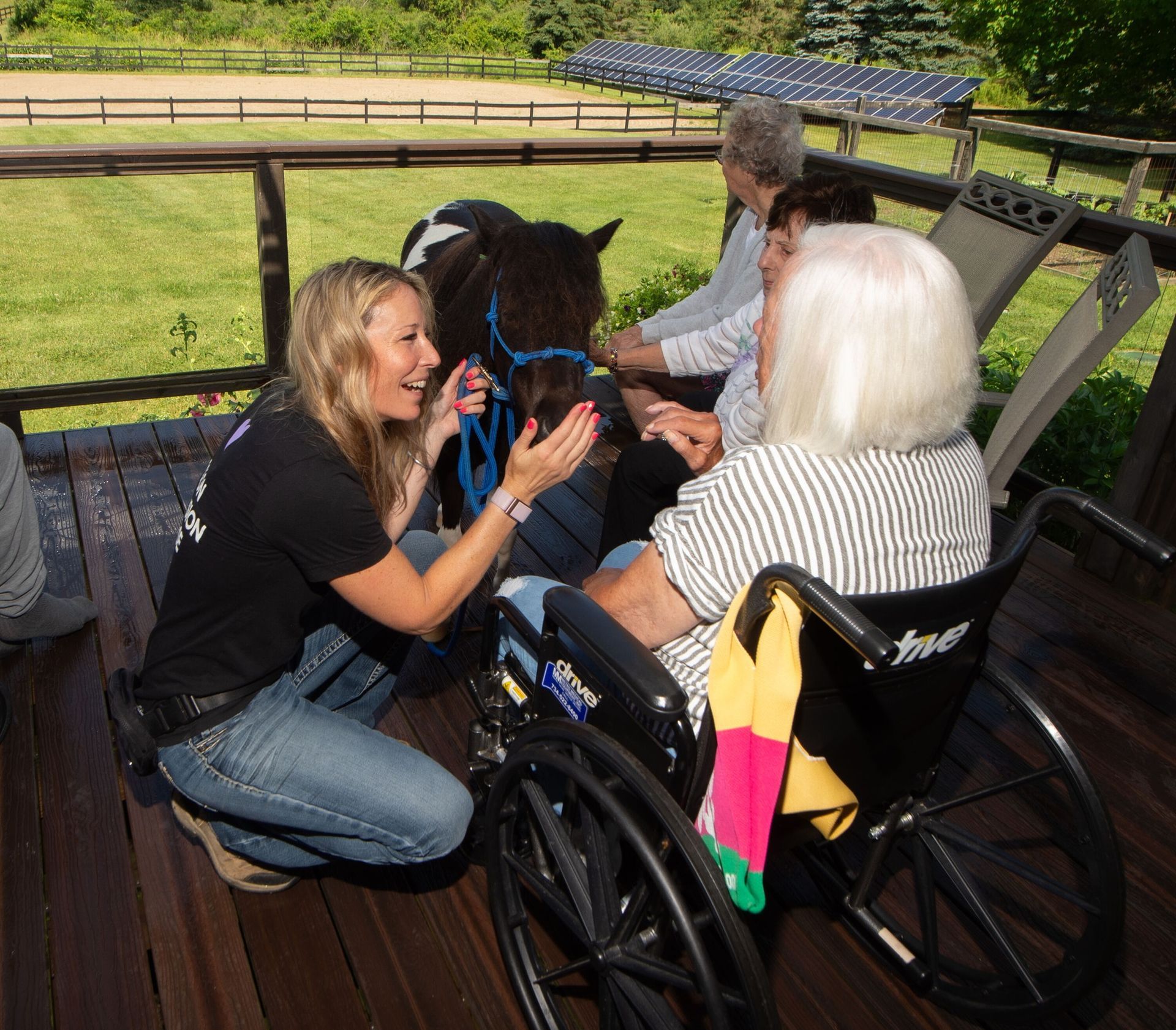Nursing Home Abuse & Neglect: What Every Family Needs to Know
New Title

Placing a loved one in a nursing home or long-term care facility is never easy. Even when it’s the best and safest option, trusting others with the care of someone you love can be emotionally overwhelming. While many caregivers work with compassion and professionalism, nursing home abuse and neglect remain disturbingly common across the United States.
By learning what elder abuse looks like and how to respond when you suspect it, families can become powerful advocates for the vulnerable adults in their lives.
Table of Contents
- What Is Nursing Home Abuse?
- Understanding the Different Levels of Care
- Types of Nursing Home Abuse
- Why Does Nursing Home Abuse Occur?
- Signs to Look Out For
- How To Report Nursing Home Abuse
- Helping Prevent Nursing Home Abuse
- Protecting Your Loved Ones
What Is Nursing Home Abuse?
Nursing home abuse refers to any type of mistreatment, harm, or neglect of a resident in a long-term care setting. This may involve physical violence, emotional mistreatment, financial exploitation, or the failure to meet basic care needs. Unfortunately, abuse is underreported — with estimates suggesting that only 1 in 14 cases ever reach authorities.
Family members are often the first line of defense. If you believe something is wrong, trust your instincts and take action.
Understanding the Different Levels of Care
Abuse and neglect are not limited to nursing homes. Vulnerable adults can be mistreated in any elder care setting, including:
- Independent Living: Private residences within a senior community, with no daily medical care provided.
- Assisted Living: Help with daily activities like bathing, dressing, and medication, but less medical oversight.
- Skilled Nursing: 24/7 nursing care, often for residents with complex medical needs.
- Memory Care: Specialized care for individuals with Alzheimer’s or dementia.
- Continuing Care Retirement Communities (CCRCs): Offer a range of care levels within one campus.
Each environment carries different risks. Understanding what level of care your loved one is receiving helps identify potential red flags.
Types of Nursing Home Abuse
Elder abuse can take many forms. Common types include:
- Physical Abuse: Hitting, slapping, or using excessive force during care.
- Emotional or Psychological Abuse: Yelling, threatening, humiliating, or isolating residents.
- Sexual Abuse: Any unwanted or inappropriate sexual contact.
- Financial Exploitation: Misuse of funds, theft, or identity fraud.
- Neglect: Failing to meet basic needs like hygiene, nutrition, and medical care.
Neglect may be unintentional, but its effects are just as serious — especially in facilities with chronic understaffing.
Why Does Nursing Home Abuse Occur?
There is no single cause, but several systemic issues create a dangerous environment for residents:
Staff Shortages
According to the American Health Care Association, 99% of U.S. nursing homes report staff vacancies. Many are forced to hire underqualified employees or stretch existing staff too thin. Undertrained or overworked caregivers may lash out, neglect duties, or make preventable mistakes.
Failures in Management
Leadership plays a critical role in facility culture. Poor management can mean inadequate supervision, missed safety issues, and failure to enforce protocols. Some facilities may prioritize profit over resident well-being, choosing to cut staff or skip training rather than invest in care.
Lack of Accountability
In some cases, abuse is reported but ignored. Complaints may be dismissed, or administrators may delay taking action. Facilities that don’t hold staff accountable are more likely to see repeated abuse and systemic neglect.
Signs You Should Look Out for if You Suspect Elder Abuse in Nursing Homes
Abuse isn’t always visible, but here are signs to watch for:
- Unexplained Injuries: Bruises, fractures, or burns with vague explanations.
- Frequent Falls: Could point to a lack of supervision or poor facility safety.
- Rapid Weight Loss: May suggest neglect or emotional distress.
- Poor Hygiene: A sign of missed care routines like bathing and grooming.
- Bedsores: Indicates a failure to reposition immobile residents regularly.
- Fearfulness or Withdrawal: Sudden behavior changes or reluctance to speak.
- Medication Irregularities: Missed doses or overmedication can be abuse.
- Unsanitary Conditions: Dirty rooms, foul smells, or infestations.
- Restraint Marks: Evidence of improper or excessive physical restraint.
- Evasiveness from Staff: Dodging questions or denying access to records.
- Sudden Financial Trouble: Unusual transactions or missing personal items.
When something doesn’t feel right, investigate. Silence allows abuse to continue.
How To Report Nursing Home Abuse
Taking action protects your loved one and others who might be suffering in silence. Here's what to do:
1. Document the Evidence
Take photos, save emails or texts, and write down any concerning events.
2. Report to the Facility
Speak with the director or head nurse. Document your concerns and their response.
3. Notify State Agencies
Contact your state's Department of Health or Department of Aging to launch a formal investigation.
4. Contact Adult Protective Services (APS)
Every state has an APS office to handle elder abuse. They can assess the situation and intervene.
5. Call Law Enforcement
If you believe a crime has occurred or someone is in immediate danger, call 911.
6. Seek Legal Advice
A nursing home abuse attorney can help determine whether you have a case and assist in gathering additional evidence.
Helping Prevent Nursing Home Abuse
Abuse thrives in secrecy. The more present and informed you are, the better you can protect your loved one.
- Visit Frequently: Show up unannounced when possible.
- Get to Know Staff: Establish rapport and open communication.
- Stay Observant: Pay attention to mood, cleanliness, and behavior changes.
- Know Their Rights: Learn about nursing home resident rights in your state.
- Stay Involved: Attend care planning meetings and advocate for their needs.
Choosing the right facility matters — but continued advocacy matters even more.
Keep Your Loved Ones Protected From Nursing Home Abuse
No one should suffer abuse in the place they are meant to feel safe. If your loved one is in a nursing home, stay involved, stay alert, and know what to do if something goes wrong. Abuse and neglect can be stopped — but only when someone speaks up.
If you suspect nursing home abuse, don’t wait. Document your concerns, report them, and get help. Your vigilance could protect not just your loved one, but many others too.











